Top 10 Best Portable Generators

Portable generators have multiple uses but are common among RV owners and vehicle owners who often go camping, take long trips, or go tailgating. There are plenty of options available, spanning price ranges from extremely affordable to extremely expensive. So how do you choose the right portable generator?
In this article, we’ll take a look at 10 of the best and most popular portable generators currently available, while detailing what you need to look for when shopping for a portable generator and why you need one. Today, there are gasoline and electric generators, but they serve different purposes. Gasoline generators use a small engine to provide power, while electric generators are essentially larger power banks with outlets. Most electric generators will provide enough power to deal with small appliances, but if you’re needing to power a full-size fridge or other appliances, you’ll need to get a gasoline generator.
If you want to know more about portable generators like what to look for and how they work, use the table of contents to navigate, but first, here is a list of the top 10 best portable generators you can buy.
Table of contents
- 1. Editor's Pick: DuroMax 4,400W Portable Generator (XP4400E)
- 2. Best Quiet Generator: Yamaha 1600/2000W Portable Inverter (EF2000iSv2)
- 3. Best Electric Generator: Webetop 155Wh Portable Generator
- 4. Champion 3500W RV-Ready Portable Generator (46539)
- 5. Westinghouse 3500/4200W Portable Inverter Generator (iPro4200)
- 6. Rockpals 250W Portable Generator
- 7. Honda 2800W Portable Generator (EB2800i)
- 8. Goal Zero Yeti 400 Portable Power Station
- 9. Grucore 151Wh Portable Generator
- 10. SUAOKI S270 150Wh Portable Power Station
- What is a Portable Generator?
- How to Choose the Right Portable Generator
- Max Wattage vs. Running Wattage
- Properly Caring for Your Portable Generator
1. Editor's Pick: DuroMax 4,400W Portable Generator (XP4400E)
When it comes to gas-powered generators, the DuroMax XP4400E is one of the more affordable options currently available. It uses a 7.0-horsepower generator for a rated output of 3,500 watts and a max output of 4,400 watts, enough to power a small house. The air-cooled OHV engine takes advantage of a muffler to run at 69 dB. This generator uses a 4-gallon tank, providing up to 8 hours of continuous power at 50-percent load.
The DuroMax XP4400E features a heavy duty frame, solid tires, and an automatic low-oil shutoff, just some of the multiple features that keep it protected. It is also EPA and CARB approved, so you can use it in national parks. There's a full power panel with engine shutoff switch, volt meter, circuit breaker, and power outlets, including two fully protected 120-volt outlets and one 120-volt/240-volt twist-lock outlet.
This generator does require 10/30 SAE motor oil to operate, along with unleaded gasoline.
Pros | Price, max 4,400 watts of power, 4 gallon gas tank, EPA/CARB approved, automatic low-oil shutoff |
Cons | Louder than other generators |
2. Best Quiet Generator: Yamaha 1600/2000W Portable Inverter (EF2000iSv2)
For something extremely portable, there's the Yamaha EF2000iSv2, a 1,600-watt rated generator with 2,000-watt maximum output. This is one of the quietest portable generators you can buy, with its noise level rated at 51.5 dBA to 61 dBA. Measuring 19.3 inches by 11.0 inches by 17.9 inches, it's easy to accommodate the generator wherever you are going. Best of all, it tips the scale at 44.1 pounds, making it relatively lightweight in the world of portable generators.
Since it is a compact generator, its fuel tank capacity is only 1.1 gallons, which offers 10.5 hours of continuous operation at 1/4-rated load. It does, however, feature what Yamaha calls Smart Throttle, which is a load sensing RPM control for greater fuel efficiency and noise reduction by automatically adjusting engine speed to match the load. It also has an inverter system that features Pulse Width Modulation so voltage stability is within 1 percent and frequency stability is within 0.1 Hz.
Other features on the Yamaha EF2000iSv2 include an oil watch warning system, gasoline petcock so you can run the carb dry for storage, two 120-volt AC outlets and one DC outlet, an auto-decompression system for easier starting, and an auto warm-up feature that increases engine speed during cold starts so it can handle high powered appliances as soon as possible.
This portable generator is both EPA and CARB approved and comes with a three-year warranty.
Pros | Lightweight, compact, decent power, quiet, three-year warranty, EPA/CARB approved |
Cons | Small fuel tank, price |
3. Best Electric Generator: Webetop 155Wh Portable Generator
Webetop is another company that offers a portable electric generator. Its offering is a 155Wh, 42,000 mAh unit that measures 7.67 inches by 6.73 inches by 3.54 inches while weighing 3.48 lbs. It's compact and lightweight like other electric generators on the list and comes with similar features including three USB outputs, three DC outputs, and an AC continuous output (100w). The Webetop generator can also be charged through an optional solar panel. When charged through a traditional power outlet, it takes about 7 to 8 hours. It does include a car charger as well.
Safety features on the generator include short-circuit protection, over-current protection, over-power protection, low-voltage protection, and over-temperature protection. It also includes a built-in ultrabright LED light.
Again, these electric generators can power smaller, more minor appliances and is more ideally used for powering and charging electronic devices. Webetop also offers a more powerful, larger unit that has 60,000 mAh capacity, 222Wh / 250W output, allowing it to support more power-demanding devices.
Pros | 155Wh, 42,000 mAh capacity, compact, lightweight, solar rechargeable, ultrabright LED light |
Cons | Can't be used on anything that requires over 100W |
4. Champion 3500W RV-Ready Portable Generator (46539)
This RV-ready portable generator comes from Champion Power Equipment and is one of the most popular and highly-rated products in its category on Amazon. It comes equipped with a 30A RV outlet and provides enough power to start and run a 15,000-BTU RV air conditioner. Powered by a 196cc Champion 4-stroke OHV engine, this generator produces 3,500 running watts and 4,000 starting watts. The engine also features Cold Start, helping it start easily in cold weather.
From 23 feet, this generator produces 68 dBA, so it's a bit louder than the competition. But it offers up to 12 hours of run time on a full tank of gasoline (3.8 gallons) at 50-percent load. It requires 0.6 quarts of oil, 10W-30 recommended. The Champion 46539 is 50-state and CARB compliant.
Safety features include Volt Guard, a built-in surge protector that protects appliances from any spikes in voltage. The generator comes in a durable steel frame with a folding handle and never-flat tires, so it's fairly easy to maneuver around. An added convenience feature is wireless start, which allows you to power on the generator from up to 80 feet away with a remote.
Outlets on the generator include the 120-volt 30A locking, 120-volt 30A RV, and two 120-volt 20A household outlets.
The Champion portable generator comes with a two-year limited warranty.
Pros | Wireless remote start, powerful, EPA/CARB compliant, solid run time, RV ready, Volt Guard |
Cons | Louder than other generators |
5. Westinghouse 3500/4200W Portable Inverter Generator (iPro4200)
Westinghouse has a wide variety of portable generator offerings depending on your needs, so you don't necessarily have to choose the iPro4200. It's our recommendation as a solid all-around option, offering 3,500 rated watts of power and 4,200 peak watts. It comes equipped with six 120-volt 20A GFCI power outlets and two USB outlets, along with a durable steel fuel tank and a rugged steel frame.
Its fuel tank capacity is 4 gallons, allowing it to have a run time of 22 hours on 25-percent load. Fully assembled, the iPro4200 measures 24 inches by 20.5 inches by 20 inches and weighs 82 lbs dry. It is both EPA and CARB approved, powered by a 5.8-horsepower 212cc engine. Like other gas generators, it requires 0.6 quarters of oil, 10W30 recommended.
The iPro4200 comes with a one-year commercial warranty or 1,000 hours, or a three-year residential warranty or 1,000 hours.
Pros | Performance, variety of outlets, designed for commercial use, fuel efficient |
Cons | Price, weight, no advertised dB rating suggests it's loud |
6. Rockpals 250W Portable Generator
Rounding off the list is another electric portable generator, this one from Rockpals. It is rated at 250 running watts or 300 surge watts and comes equipped with two 110-volt 3-prong outlets, two 5-volt USB ports, and four 12-volt DC 5A outlets. Weighing 5.5 lbs, it's a bit heavier than other electric generators, but it does have 60,000 mAh capacity with 222Wh displacement. It uses a 3.7-volt 60Ah battery, which can be charged by a wall outlet, car charger, or compatible solar panel. When charging through a standard wall outlet, expect it to take about 8 hours to fully charge.
Sporting a compact design, the Rockpals RP250W measures 10 inches by 4 inches by 6 inches and incorporates a handle for easy carrying. This generator is ideal for powering or charging devices such as inductive microwaves, fluorescent lights, audio amplifiers, smaller TVs, and electronic devices.
Pros | Compact, 250W electric generator, 60,000 mAh capacity, 222Wh |
Cons | Price, weight (relative to other electric generators) |
7. Honda 2800W Portable Generator (EB2800i)
If you're willing to spend quite a bit more on a high-quality generator, look towards Honda's lineup of products. The EB2800i is a lightweight gasoline generator, weighing just 67 lbs. It is rated at 2,500 watts while offering max output of 2,800 watts, and can operate up to 12 hours using only 2.1 gallons of fuel. Powering the generator is a Honda 186cc engine that is certified to meet 50-state EPA and CARB emissions levels. As you expect from Honda, the engine has fuel sipping technology in the form of an "Eco Throttle" system that allows the engine to adjust up and down to produce only the power you need.
It operates at 62 to 67 dBA, making it relatively quiet, and is designed to meet OSHA and LA-ETL requirements. Protecting the generator is a full frame that also offers convenient hand holds and tie down locations for when you need to transport it.
The Honda EB2800i comes with a three-year residential warranty, or a one-year commercial warranty. If you're willing to spend more or need more, Honda offers a few other generators that are more powerful or more compact.
Pros | Lightweight for a gas generator, relatively quiet, fuel efficient, decent power, three-year residential warranty |
Cons | Price |
8. Goal Zero Yeti 400 Portable Power Station
Another electric option is the Goal Zero Yeti 400, a more expensive battery-powered generator. It features a 396Wh lead acid battery with 33Ah capacity that can power up to seven devices at once. There's a variety of USB, AC, and 12-volt outlets on the generator, which can be charged in as little as 5 hours from a wall outlet with the included AC charger. Using a car charger, it will take up to 13 hours to charge, or 8 hours if you opt for Goal Zero's solar panels. You can also chain them together for long-lasting power.
It's a bit on the heavier side, weighing in at 29 lbs. The Goal Zero Yeti 400 measures 10.25 inches by 8 inches by 8 inches and comes with a six-month warranty.
Like other electric power generators, this unit isn't designed to power major appliances, but it can handle a mini fridge of small TV. It's ideal for charging and powering electronic devices such as laptops, smartphones, tablets, and digital cameras.
Pros | Large battery capacity, plenty of outlets, solar rechargeable, fairly compact |
Cons | Heavy, price, only works on smaller appliances |
9. Grucore 151Wh Portable Generator
If you don't want a portable gas generator, there are electric generators you can choose from that are basically really large battery packs. The Grucore portable generator, for example, is a 151 Wh unit that can charge a variety of items with three 12-volt DC outlets, two 110-volt AC outlets, and two USB 5-volt ports. It's designed to be a travel-friendly unit, weighing just 3.3 lbs and comes equipped with a handle.
You can charge the generator itself from a standard home AC power outlet in about 8 hours, or a 12-volt outlet in 13 hours. Grucore also offers a separate solar panel that can be used to recharge the generator in as little as 8 hours, depending on the conditions. It also features an LED flashlight and a single button to turn it on.
Now keep in mind since this is an electric power generator, it shouldn't be used for anything that requires over 100 watts. But if you're looking for a compact, lightweight generator to charge or power electronics and other low-powered appliances, the Grucore unit is a good recommendation especially at its price.
The product comes with a one-year replacement guarantee. If the generator fails within one year, Grucore will send you a brand new replacement.
Pros | All-electric, plenty of outlets, lightweight, compact, solar rechargeable, price |
Cons | Can't be used on anything that requires over 100W |
10. SUAOKI S270 150Wh Portable Power Station
One of the more affordable power generators available comes from SUAOKI. It's a 150Wh unit equipped with two AC outlets, four DC ports, one QC3.0 USB port, and three standard USB ports. Like other battery power generators, the AC outlets only support max 100 watts, so you won't be able to power most appliances off this generator. Instead, you gain the advantages of portability and weight, with the power station measuring 7.3 inches by 4.3 inches by 4.7 inches, while weighing only 2.9 lbs. It includes two lift handles for easy carrying.
The company also offers an affordable solar panel option, so you can charge the generator without having to plug it in. It takes about 8 hours to fully charge the unit through a standard power outlet.
The S270 also features two flashing lights for emergency use and comes with an 18-month warranty. It is ideal to use on the go, capable of charging and powering laptops, mini fridges, small fans, LED lights, inflator pumps, small coolers, electronic devices, and even a low-powered vacuum cleaner.
Pros | 150Wh, QC3.0 USB, compact, lightweight, built-in handles, two flashing lights, 18-month warranty |
Cons | Can't be used on anything that requires over 100W |
What is a Portable Generator?
Traditionally, portable generators provide electricity by using a small gas-powered engine to turn an on-board alternator to generate power. But in recent years, manufacturers have turned to electric portable generators, which are essentially just really big power banks, similar to what you probably own to use as a backup charger for your phone when you're on the go.
If you travel frequently in your car, go camping with your vehicle, or own an RV, you likely want to get yourself a portable generator. If you need an RV-ready generator, you'll likely be purchasing a gasoline unit. Electric generators have limited uses, but in today's modern world, they do come in handy when you need to charge electronic devices or other small, minor appliances.
Gasoline portable generators can only be used outside because they will release carbon monoxide just like a car, so owning an electric generator for inside your RV isn't a bad idea. They also come in handy if you live in an area that experiences frequent hurricanes or other natural disasters that could cause long-term power outages.
How to Choose the Right Portable Generator
Portable generators are available across a wide range of prices, so choosing one may be difficult. The best way is to figure out what appliances and devices you want to power using the generator, and choosing one that offers sufficient power. From there, certain features will depend on you. Do you want a generator that's quiet? How often do you want to have to refill the fuel tank? Do you need one that's extra portable and lightweight? Make sure to check how many different power outlets the generator has to offer and whether you need one that is RV ready.
Some features to keep an eye on when shopping for a portable generator include the fuel tank size, whether it uses a muffler to reduce engine noise, how many outlets it has, and if it has wheels for easier transportation. A gas-powered generator should also have a clear fuel gauge, a warning when it's running low on fuel, and an auto-stop function to prevent damage from running on no fuel. Another important aspect is making sure the generator comes with a solid warranty, so you know you won't encounter any headaches if something happens to malfunction.
Max Wattage vs. Running Wattage
You will notice that many gasoline generators have two different power ratings: max wattage and running wattage. Those values will correspond to an appliance's starting watts and running watts, since it takes more power to start an appliance than it does to run it. You will want to take that into account when calculating the wattage you need from your generator.
Look at all the appliances you are planning to run off the generator and make sure the one you're purchasing is able to accommodate all those. Traditionally speaking, powering an air conditioner in an RV will take the most power, which is why you should look out for RV-ready portable generators if you need one to power the RV.
Properly Caring for Your Portable Generator
Caring for an electric portable generator is pretty straightforward, so this section is mainly for gasoline-powered generators. But regardless of what kind of portable generator you purchase, you'll want to make sure you have a good cover or enclosure for it. Water and electricity don't mix well, so you will want to protect the generator when it's in use and even when it's not being used.
If you're not planning to use your portable generator for a long period of time, make sure it's stored with an empty tank. Before you do that, however, purchase a quality gas stabilizer and add it to the leftover fuel in your tank. Run the generator for about 15 minutes and then let the engine cool down. Once that's completed, start the engine once again and let it run until it's out of gas. You can also siphon out the gas if there is a lot of fuel left in the tank.
If your generator has an electric starter and uses a battery, make sure the battery is fully charged before you store the generator. If you own a trickle charger, it's not a bad idea to keep it plugged in so that the battery is ready to be used when you need it.
Don't let your generator be stored for longer than three months without starting it. You'll want to make sure the engine fires up and runs, lubricating the components with oil every so often. It's recommended to do this at every 30 days to ensure your generator lasts you years.
Since your gasoline generator is powered by a small engine, it requires similar general maintenance you would expect from your car's engine. That means changing the oil around every 100 hours of use, as well as the spark plug and air filter every 200 hours or so. It doesn't hurt to keep spare oil, filters, and spark plugs lying around in your garage, so you have them ready to go for maintenance.
We are committed to finding, researching, and recommending the best products. We earn commissions from purchases you make using the retail links in our product reviews. Learn more about how this works.
Photo credit: Radovan1 / Shutterstock.com

Jason Siu began his career in automotive journalism in 2003 with Modified Magazine, a property previously held by VerticalScope. As the West Coast Editor, he played a pivotal role while also extending his expertise to Modified Luxury & Exotics and Modified Mustangs. Beyond his editorial work, Jason authored two notable Cartech books. His tenure at AutoGuide.com saw him immersed in the daily news cycle, yet his passion for hands-on evaluation led him to focus on testing and product reviews, offering well-rounded recommendations to AutoGuide readers. Currently, as the Content Director for VerticalScope, Jason spearheads the content strategy for an array of online publications, a role that has him at the helm of ensuring quality and consistency across the board.
More by Jason Siu



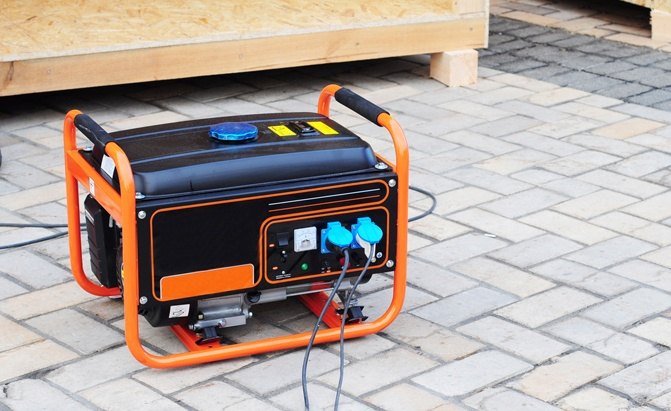
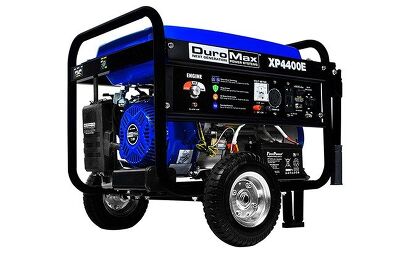






















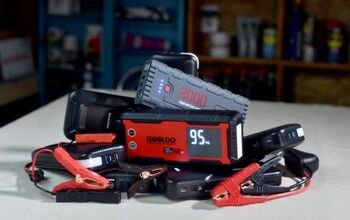
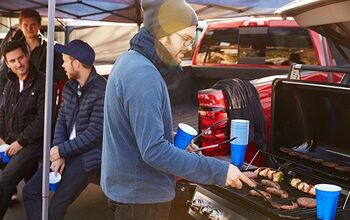






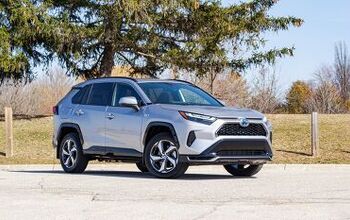

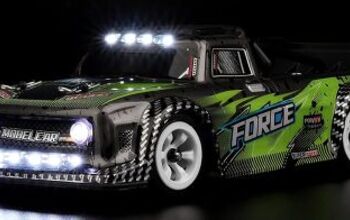

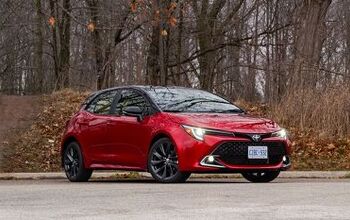
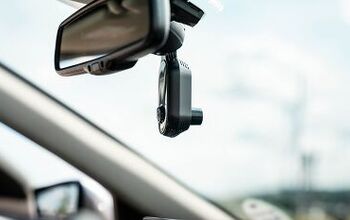


Comments
Join the conversation